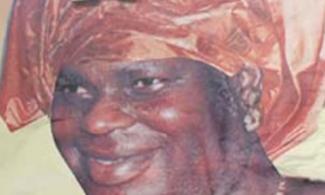
Facing an unprecedented backlash over yesterday’s state pardon granted by President Goodluck Jonathan to his mentor Dipreye Alamieyeseigha, the president today tried to hide under the umbrella of the Council of States to justify the action.
Facing an unprecedented backlash over yesterday’s state pardon granted by President Goodluck Jonathan to his mentor Dipreye Alamieyeseigha, the president today tried to hide under the umbrella of the Council of States to justify the action.
googletag.cmd.push(function() { googletag.display('content1'); });
In a statement made by the Senior Special Assistant to the President on Public Affairs, Dr Doyin Okupe, the president said the pardon granted to various criminals was not his own but that of the Council, which has the constitutional power to do so.
In a stunning move on Tuesday, the Council granted pardon to the serially-corrupt Alamieyeseigha, who escaped the United Kingdom in 2005 dressed as a woman so as to avoid trial; former Chief of General Staff, General Oladipo Diya; former Chief of Staff, Supreme Military Council, Major-General Shehu Musa Yar'Adua; Major Bello Magaji; Mohammed Lima Biu; Shettima Bulama; Major-General Abdulkareem Adisa and Major Segun Fadipe.
Alamieyesegha, like former Delta State governor James Ibori, came to symbolize corruption in Nigeria for his wild money-laundering that was well-documented by the UK Metropolitan Police where fellow corrupt politicians and friends prevent the law from taking its course. But the former policeman remained close to Jonathan, who, as soon as he became President must have appeared to Alamieyeseigha to be the very road out of his problems.
googletag.cmd.push(function() { googletag.display('content2'); });
Nigerians who have spoken to the press generally hold the view that Alamieyeseigha was the very objective of the exercise, as President Jonathan only recently declared the former Bayelsa governor his mentor. News reports are using such words as “uproar” and “outrage” to describe the response of their readers and commentators.
In public comments earlier today, however, Jonathan said he has no apologies for the pardon.
Speaking through Okupe on a morning television show, Jonathan said, “That is an action that has been taken by the National Council of States and I have no apology for that…A man was deposed. He was hounded, tried and jailed. What is wrong with giving pardon to a remorseful sinner?”
The beleaguered Okupe, talking up the Council of States in his press statement, pointed out that it comprises the President, Vice presidents, all former presidents, former chief justices of the Federation, the leadership of the National Assembly and all state governors, people whom he said do not take decisions on impulse.
On the criticism leveled against President Jonathan by some members of the political class over the President’s recent visit to Yobe and Borno States and the non-granting of amnesty to members of the Boko Haram sect, Dr. Okupe described the allegations as cheap, ill-informed and ill motivated.
“It may be apt at this juncture for the purpose of comparison to recall when in 1980, during the Maitatsine insurgency in Kano, over 6,000 residents of Kano were killed in broad daylight but President Shehu Shagari who was the President of Nigeria at that time did not rush to Kano. President Shagari as a matter of fact did not go there for a very long time until the security situation in Kano had been brought to a situation where a President could visit and there was no hue or cry as at that time.”
He said it was inconceivable that some people have continued to liken Boko Haram to the Movement for the Emancipation of the Niger Delta (MEND) to whom government offered an amnesty in 2010.
“Even though the methods adopted by MEND were like-wise condemnable, their demands were mainly socio-economic in nature and spelt out as crusade for better deal for its people whose farmlands and waters have been degraded by pollution emanating from the activities of oil firms operating in the region, Crusade for a greater share of funds accruing to oil producing states from the Federation Accounts. massive development of the Niger Delta region though provision of infrastructure like pipe borne water, electricity, hospitals and good roads.He noted that despite the economic nature of those demands, leaders of the MEND were not anonymous, but came out to dialogue with government and that it was on the basis of the dialogue that an amnesty was eventually granted by the Federal Government.”
He said that while the Jonathan holds the Sultan of Sokoto in high esteem and does consult him from time to time on various national issues, the religious leader’s request for amnesty for Boko Haram is understandable in view of his eminent position as the leader of the entire Muslim community in Nigeria and the pre-eminent traditional ruler in the North.
“However, the President has a responsibility to the whole Nation and his judgment must be based on facts and information that are available to him and that will be in the best interest of the Nigerian people,” he said. “The President cannot afford the luxury of sentimental consideration under the present situation where government has to contend with and find a lasting solution to the menacing issue of Boko Haram insurgency.”
President Jonathan, his claims to integrity and credibility increasingly being shredded every day, wants a second term of office in 2015.
googletag.cmd.push(function() { googletag.display('comments'); });